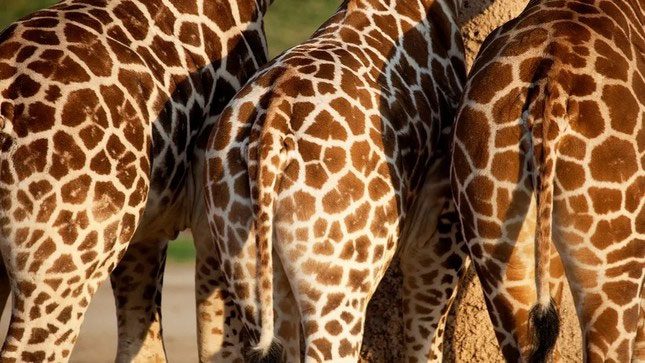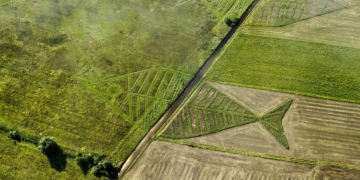Scientists have discovered bacteriophages, a type of virus that infects bacteria, in animal feces and are testing their potential as effective alternatives to antibiotics.
Researchers report that viruses obtained from the feces of giraffes, lemurs, and a mammal known as the binturong may be useful in combating drug-resistant bacteria and preventing subsequent antibiotic resistance.

Animal feces may contain viruses capable of destroying antibiotic-resistant bacteria. (Photo: Babyelefante via Getty Images)
Researchers from the University of Sheffield in the UK have been searching for bacteriophages in animal feces collected from the Yorkshire Wildlife Park, a conservation and rehabilitation center for wildlife in Branton, England. This park houses around 475 species representing over 60 different types, providing a unique opportunity for scientists to explore bacteriophages from a variety of unusual feces.
Graham Stafford, head of the microbiology department at the University of Sheffield and the leader of the study, mentioned that the idea came to him during a family visit to the wildlife park. When he discussed this project with the park staff, they were eager to assist.
Searching for Bacteriophages in Animal Feces?
Bacteriophages are a crucial component in new treatment methods for bacterial infections, known as bacteriophage therapy.
In clinical trials and serious cases where other treatments have failed, doctors have used bacteriophages as an alternative or supplement to traditional antibiotics. Bacteriophages typically destroy pathogenic bacteria by entering the microbial cells and eliminating them from within.
Graham Stafford noted that while bacteriophages continue to drive bacterial evolution, when bacteria evolve to evade bacteriophages, the target bacteria tend to become more susceptible to traditional antibiotics.
Stafford and his colleagues aim to explore new bacteriophages in the environment and in animal feces to expand the variety of bacteriophages that can be utilized in treatment methods.
Previously, researchers isolated bacteriophages from the human mouth while searching for those that could treat common bacteria infecting dental roots. Additionally, they are looking for bacteriophages “in various types of livestock waste,” such as waste from cattle and chickens.
Currently, the team has been working with the Yorkshire Wildlife Park for about a year and has collected bacteriophages from species such as the Guinea baboon (Papio papio), giraffe (Giraffa), Visayan pig (Sus cebifrons), and binturong (Arctictis binturong), as well as various species of lemurs.
The research team is now focusing on finding bacteriophages that could help treat foot infections in diabetic patients, a common complication for those with poorly controlled blood sugar levels.
Clinical trials are underway or about to commence to test bacteriophage therapies for infections, with some early-stage trials completed showing that this treatment method is safe for humans.



















































